
Nick Abbot 10pm - 1am
31 August 2023, 22:00 | Updated: 31 August 2023, 22:02
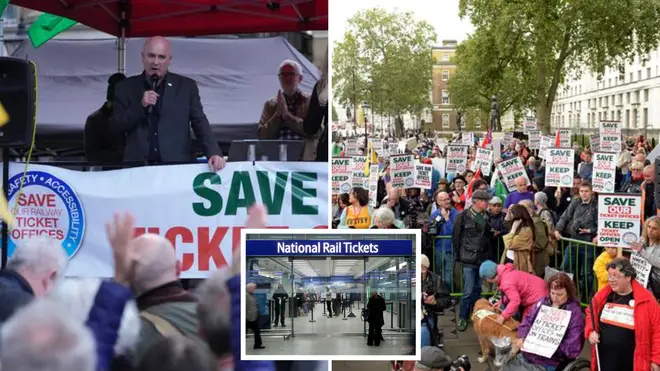
Mick Lynch has held a large rally outside Downing Street to protest against the planned closure of railway ticket offices.
Industry body the Rail Delivery Group (RDG) plans to close nearly every ticket office across England in the coming years in a bid to "modernise customer service", with proposals unveiled in July.
RMT union boss Mr Lynch has slammed the plans, with Thursday marking the last day of consultations.
Mr Lynch, who has become a prominent public figure in recent years amid repeated railway strikes, led a protest rally to Downing Street on Thursday evening to voice displeasure at the planned closures.
Hundreds of people were in attendance, including disabled activists and former Labour leader Jeremy Corbyn.
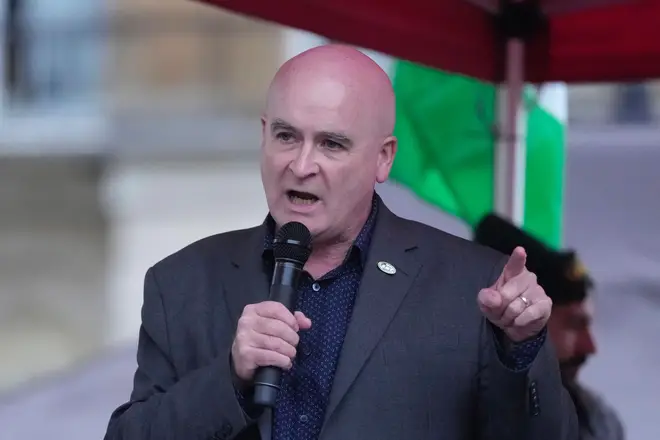
Addressing the crowd, Mr Lynch said: "It's a fight for the future of our communities. People up and down this country are sick and tired of their communities being hollowed out.
"Our Post Offices are being closed, our pubs are being closed. Our banks have withdrawn from the High Street.
"Everywhere we go, all the community assets are being hollowed out in the name of profit, in the name of modernisation."
Mr Lynch added that the trade union members will "stand up for themselves".
"We're going to stand up for ourselves, not rely on the professional politicians, and the shysters," he said.

RMT's Mick Lynch brands the decision to close ticket offices nationwide 'unacceptable'
"Let's have a working class movement that serves our interests that serves our people are waiting for our class solidarity. Let's get in before the rain comes.
"There's a storm coming, make sure the Tories feel it."
More than 460,000 people have responded to the proposals, and London TravelWatch and Transport Focus will assess the response to the consultation after it ends on Friday.
Under the plans, nearly all ticket offices could be shut with only the busiest stations left with open person-operated ticket facilities.
There are 1,007 stations in England run by train companies operating under contracts issued by the UK Government.
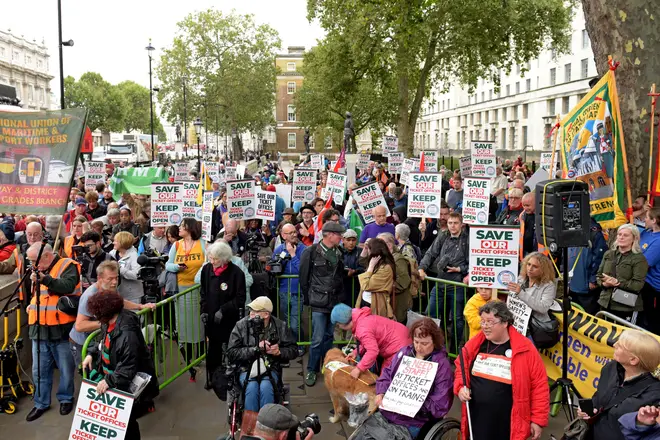
Speaking to Andrew Marr in July, Mr Lynch also expressed concern about the closures being a marker of greater "dehumanisation" to come for railway services in the future.
"It’s also about security and the ticket office issue is a bit of a diversion in some ways," he continued.
"We believe in ticket offices. But once they’ve got these regulations out of the way, and the ticket office regulations are the only thing that guarantees station staff in, they will de-staff stations en masse.
"What they’ll put forward is some half-hearted commitments that 'we’ll try to get an assistant to you', but if you’re disabled, if you’re an a elderly person or somebody who's just worried about their journey, there will not be a guaranteed person there.
“In most stations that they’ve gotten away with it already they have completely de-staffed and there’s nobody on them at all.
"And if that’s the entire rail network, we’ve got a very frightening prospect in front of us. They’re now intent on making hundreds if not thousands of redundancies through this method."
He went on: "This is about maximising profits, these train operating companies have made profits throughout the pandemics and throughout the strikes when they subsidise.
"We predicted a year ago and two years ago that they would make this move and it’s not just for ticket office staff, they’re taking away trained dispatch staff, they’re taking customer assistant staff and the mobility people that can drive people around in little buggies.
"It’s a mark of what’s to come. They want to completely strip the railway out and make it dehumanised.”
Posters are being displayed at the vast majority of stations informing passengers about the potential closure of the ticket office.
It is not known how quickly the first sites will close, but the programme is expected to last for three years.
Read more: Boris Becker 'hid horses in his bedroom' to hide them from debt collectors, wife claims
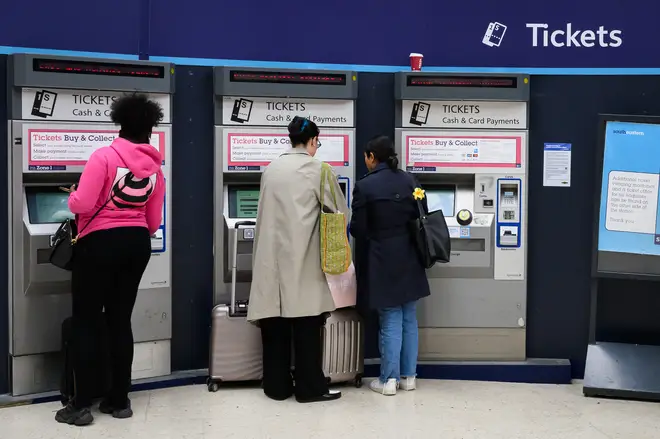
It comes amid reports the rail industry is under pressure from the Government to save money amid the drop in revenue caused by the coronavirus pandemic.
Train companies across England will launch passenger consultations on the ticket office closures.
The RDG said 12% of train tickets are bought from offices at stations, down from 82% in 1995.
Passengers will be asked to pay for journeys by tapping contactless cards on barriers, using self-service machines, or buying tickets from staff on station concourses or trains if possible."
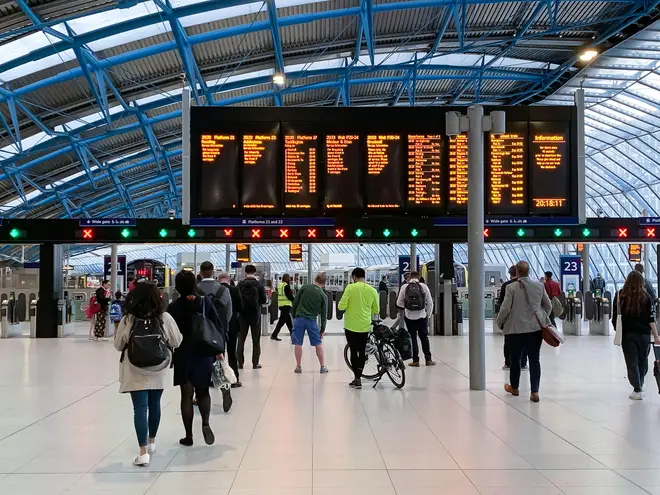
Rail unions and passenger groups have warned the closures would particularly affect disabled and elderly passengers.
Vivienne Francis, chief social change officer at the Royal National Institute of Blind People (RNIB), said: "A mass closure of rail ticket offices would have a hugely detrimental impact on blind and partially sighted people's ability to buy tickets, arrange assistance and, critically, travel independently.
"RNIB research shows that only 3% of people with sight loss said they could use a ticket vending machine without problems and 58% said it was impossible."
Neil Middleton, director at pressure group Railfuture, urged the industry to "encourage more self-service but don't force it".
He said: "If this change drives passengers off the trains, then we'll all be worse off.
"Even though there may be a cost saving, if fewer passengers are on the trains it is very easy to see that income will reduce."
RDG chief executive Jacqueline Starr said: "The ways our customers buy tickets has changed and it's time for the railway to change with them.
"With just 12% of tickets being sold from ticket offices last year, and 99% of those transactions being available on TVMs (ticket vending machines) or online, our proposals would mean more staff on hand to give face-to-face help with a much wider range of support, from journey planning, to finding the right ticket and helping those with accessibility needs.
"Our commitment is that we will always treat our staff, who are hugely valued and integral to the experience our customers have on the railway, fairly, with support and extra training to move into new more engaging roles."